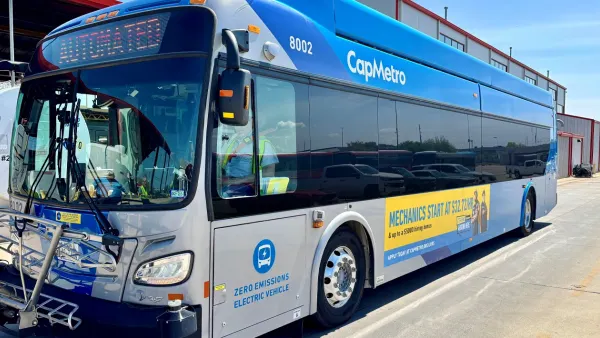Dive Brief:
- Don Butler, executive director of the Ford Connected Vehicle Platform and Product, announced in a Medium post on Monday that Ford has committed to deploy cellular vehicle-to-everything (C-V2X) technology in all new U.S. vehicle models starting in 2022.
- The C-V2X tech will allow equipped vehicles to "talk" to and "listen" to each other, as well as directly connect with traffic management infrastructure (such as traffic lights). Pedestrians can also use their mobile phones to convey their locations to vehicles, making roads safer for walkers and cyclists.
- "Driver-assist technologies today and autonomous vehicles of the future utilize on-board sensors much in the way people use their eyes to navigate complex environments," Butler wrote. "C-V2X could complement these systems in ways similar to how our sense of hearing complements our vision to improve our ability to operate in a complex world."
Dive Insight:
5G isn't just changing how society will utilize the internet — it's also transforming how vehicles can connect with their surrounding environment. The C-V2X platform will run on 5G and complement any existing LiDAR, radar and camera sensors for a "comprehensive view" of the road and infrastructure. According to Butler, the timing of this effort by Ford is "perfect," considering the cellular industry's push toward building 5G networks. However, the road ahead is still long — Ford acknowledges it must work with fellow automakers and government organizations in order to "create such a technology-neutral environment."
Successful deployment would significantly impact pedestrian safety and traffic accidents. As cities invest in Vision Zero efforts, there may be advantages to working with automakers such as Ford to enhance these technologies and ensure that they fit into the city's overall safety goals.
The Ford announcement, which comes as the CES 2019 tradeshow kicks off, is one of many announcements to come from automakers; themes of autonomous vehicles, connected vehicles and 5G are central focuses of the event. Kia Motors, for instance, debuted an AI system to optimize in-car environments based on drivers' emotions, while the Toyota Mobility Foundation announced on Monday the five finalists of its three-year, $4 million Mobility Unlimited Challenge.











